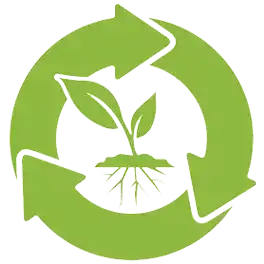Bees Ferry Compost Facility
Charleston County began composting yard waste in 1993 at the Bees Ferry Landfill and averaged about 20,000 tons per year. Today the Compost Facility covers 36 acres and processes 100% of the yard waste generated and accepted at the landfill, nearly 59,000 tons a year.
Outstanding Composting Program
Since the Program's overhaul in the 2009, the County has implemented several initiatives that have further improved the composting program. In September 2009, the County banned all yard waste from the Bees Ferry landfill and now directs it to the compost facility. Today the Bees Ferry Compost Facility processes 100% of the yard waste generated and accepted at the landfill, nearly 59,000 tons a year. Effective June 1, 2011, the County also enacted a yard waste plastic bag ban to ensure the quality of the finished compost product. The Program was further enhanced when the County conducted the state's first commercial food waste composting pilot (September 2010 - November 2011), which is now a permanent program permitted by South Carolina Department of Health and Environmental Control (DHEC). Charleston County's Environmental Management Department received the 2011 Outstanding Composting or Organics Recycling Program Award during the Carolina Recycling Association's 21st Annual Trade Show and Conference.
The facility is the first in the state to be permitted by the Department of Health and Environmental Control (DHEC) to implement two major innovations: (1) using compost as Alternative Daily Cover in the landfill, and (2) conducting a food waste composting pilot. During the first six months of the pilot program, over 500 tons of food waste was processed. In January 2013, the Program earned the United States Composting Council's (USCC) Seal of Testing Assurance (STA), which testifies that the finished compost consistently meets that program's high quality standards. Charleston County's compost has been deemed suitable for organic farming by Clemson University. Currently, Charleston County is the only producer in the South Carolina to have this certification. Charleston County is the largest compost producer in the state and one of the largest on the East Coast.
How is the Compost Made?
What Are The Benefits of Using Compost?
Adding compost to soil increases the amount of organic matter, which helps to increase nutrient levels and conserve water. Typically, South Carolina soils have an organic matter content of less than 1%, which is not sufficient for ideal water retention. Compost can hold up to 10 times its own weight in water, so it is a very effective tool for water conservation.
Other benefits of compost include:
- Reduced soil compaction and increased root growth
- Increased nutrients and beneficial soil microbes
- Reduced need for fertilizers
- Healthier plants and more rapid growth rate
Enhancing The Quality of Compost
The County has implemented a ban on the delivery of yard waste in plastic bags at the landfill, effective November 1, 2011. Your cooperation in making this important change has been greatly appreciated! For additional information regarding the yard waste plastic bag ban program, please refer to the Yard Waste Plastic Bag Ban page.


Charleston County
ChasCountyGov
ChasCountyGov
Charleston County Government
CharlestonCountyGovernment
CharlestonCountyGovernment
CharlestonCountyGov
ChasCountyGov